Green or sustainable tourism has been described as managing tourism’s impact on the environment, communities and the economy to make sure that the effects are positive rather than negative for the benefit of future generations. English Tourism Council, 2003
The costs of traditional tourism are rising, and we are not just talking about the price of airfare and hotel rooms. Tourist development frequently comes at the cost of the cultural and environmental integrity of the local population. In this way, the mass-market tourist industry is often guilty of destroying the very destinations it seeks to promote.
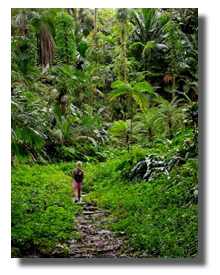
Ecotourism differs from mainstream tourism in that it helps sustain, rather than exploit, the natural beauty and cultural diversity of tourist destinations. Ecotourism is a broad term and often misused, especially in travel advertising. The most widely accepted definition is that offered by the International Ecotourism Society, which defines ecotourism as: “responsible travel to natural areas that conserves the environment and improves the well-being of local people.” Ecotourism promotes an interdependent relationship between tourists and tourist destinations, allowing tourists to contribute something to the communities they visit, in addition to taking away a richer travel experience. In this way, ecotourism promises to reunite the positive idea of a traveler, with the mostly negative label of tourist.
The Ecotourism trend is taking off due to a new generation of responsible travelers who are increasingly unsatisfied by the artificial, packaged-paradise travel experience that most tour operators offer. Coming from modern consumer cultures, these travelers crave authenticity. They want to experience the culture beyond the resort, to step out from behind their camera lenses and have meaningful interactions with the local people.
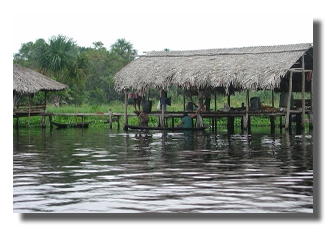
Contrary to popular belief, ecotourism is accessible to everyone. Ecotourism is often wrongly associated with adventure and wilderness travel, and the popular image of ecotourists as youthful backpackers with dreadlocks can be misleading. In reality, many Ecotourism options are available for people of all ages and levels of physical fitness. And don’t think you have to venture far from home – city, state, and national parks can be models of ecotourism. You can be an ecotourist just as easily in New York City as in Timbuktu.
The first step in planning an ecotourism vacation is finding eco-friendly accommodations. Your travel consultant can assist with finding reputable ecotour tour operators and packages that include eco-friendly lodging. Eco lodges range from 5-star luxury hotels to simple thatched huts. For the budget traveler in tropical climates, some even offer the economic option of a hammock slung between two palm trees! Many eco lodges have spas, where you can help (or at least not harm) the planet while enjoying a traditional herbal steam bath or massage. Note that smaller eco lodges may require booking well in advance.
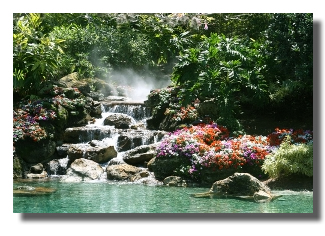
For exploring your destination, ecotourism offers many exciting alternatives. In addition to well-known outdoor ecotours (trekking in the Amazon, biking in the Outback, or cruising around the Galapagos), ecotourism includes volunteer tourism. Some of these tours, awkwardly dubbed Pro Poor or Poverty Alleviation tours, give tourists an opportunity to assist in international aid projects, such as distributing food and medicine or teaching English to children. Other volunteer tours involve tourists in environmental projects: elephant conservation in Thailand or researching Mexico’s endangered coral reefs.
Another off-beat option is a farmstay. Some farmstays are simply Bed and Breakfasts on a farm. Others educate their guests about organic farming techniques and allow them to participate in daily farm life.
Many tour operators will also arrange special interest tours. Themes include painting, yoga, meditation, bird watching, pottery, crafts and indigenous peoples. In the later case, its especially important to hire an experienced local guide or tour company. They will help you navigate culturally sensitive terrain and avoid offending or intruding on the indigenous community.
More than green sentiments, what these diverse ecotourism activities have in common is a real commitment to sustaining the people, culture and wildlife that make their destination unique. But consumers should beware that the buzzword “ecotourism” is all too often thrown around carelessly. Many tour operators bill themselves as eco but in reality do not live up to the label. That’s why it’s important to understand ecotourism before you make your travel plans, and also why it’s important to use a travel consultant who is familiar with tour operator reputations. By making responsible consumer decisions before and during your travel, you can help change the face of tourism and make it a force for empowering people around the world, rather than exploiting them.
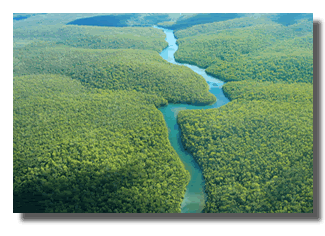
Here are some questions you can ask to determine if your eco lodge or tour operator is really committed to the principles of ecotourism, or is just greenwashing you. First, ask your travel consultant to assist with determining if the tour operator has a written policy concerning the community and the environment. Can they point to any concrete contributions they’ve made to the community, such as conservation projects or partnerships with community charities? Do they heat their buildings using solar or other renewable energy sources, also considering that firewood contributes to deforestation? Do they treat their own wastewater, or do they pump it out into local wetlands? If they can answer these questions satisfactorily, it shows they take ecotourism seriously.
But remember that a genuine ecotourist establishment must be equally committed to people as to plants and wildlife. Inquire how many locals they employ, and what positions they fill – are they managers or bellboys? What percent of their products and services come from within a 25 miles radius? Do they offer local tour guides? A local guide, in addition to being an unparalleled source of information, can help you interact with the locals in a culturally sensitive manner. What opportunities do they offer you, the visitor, to become involved in the community (such as volunteering at a local school or clinic)? Do they offer a library, workshops or other resources that encourage visitors to educate themselves about the local culture? The more you know about the destination, the more you will appreciate your stay.
Tour operators often have access to remote, environmentally sensitive areas that may be difficult or impossible to reach for tourists traveling independently. Some operators may offer day excursions starting from a nearby town or hotel. If you sign up for a complete ecotour vacation package, be sure to ask what exactly is included in the cost and what will be an additional expense (i.e., park entrance fees or tips for guides and drivers). Most ecotour companies offer small group or family excursions. If you will be traveling in a group with people previously unknown to you, many tour operators can match you according to similar age, interests or fitness levels.
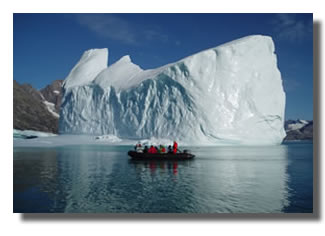
Your eco lodge or tour operator can recommend what clothing and gear to bring, and your travel agent can help you with visa, passport, medical, and insurance arrangements, if needed.
To get the most out of your ecotourism vacation, read up on your destination as much as possible beforehand. If you can study the language or learn a few useful words and phrases, even better. Travel slowly and immerse yourself in the destination and its people. Sit outside and sip a local beverage while watching daily life flow by, or join a group that allows you to contribute something. If it’s safe, walk through the streets beyond the designated tourist zones and talk to the locals, who might appreciate the effort. If you do volunteer work with children or the poor, don’t go in with the attitude that you are saving the world – you may learn far more from them than they will from you!
When you return home, you’ll find that a new, global perspective can be the most valuable souvenir of all… more than any picture you snapped or trinket you bought on the street.


